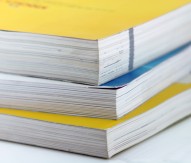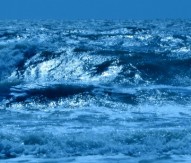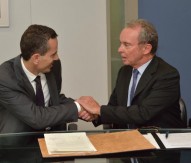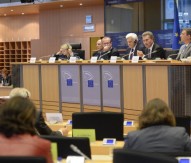
EU project helps monitor environment
An app allowing users to track how much ozone, black carbon and other pollutants they are exposed to when outdoors has been developed by partners from Belgium, Germany, Italy and the UK.
AirProbe was created to increase people’s awareness of their environment.
More than 300 people in Antwerp, Belgium, Kassel, Germany, Turin, Italy, and London, the UK, participated in the first tests. A similar app related to noise pollution – WideNoise – has already been used by more than 10,000 people and was at the centre of a study around Heathrow airport. Data collected is available to citizens, authorities and scientists.
“The EVERYAWARE project really aimed to empower people, to give them easy but accurate tools to measure air quality and noise. And then we analysed their use of the system as well as the data they had collected,” explained project co-ordinator Vittorio Loreto, a research leader at ISI Foundation in Turin and a physics professor at Sapienza University of Rome.
€2m in EU funding from the Seventh Framework Programme was invested in the project to create the tools and organise various case studies.
Two smartphone apps were developed: AirProbe monitors exposure to air pollution and WideNoise measures noise levels. Both apps include social games to share information and impressions as well as interactive maps. The AirProbe app works in conjunction with a small battery-operated sensor box that can easily be carried in a backpack or in a bicycle basket, and connects to your phone via Bluetooth. After sucking in air, the box sends readings for the level of ozone, black carbon and other pollutants to a central server, which then sends around information about the town’s polluted areas as well as peak pollution times to avoid.
Scientists can also use the information gathered to analyse pollution trends and post this information online for citizens and public authorities. This could, for example, help deal with traffic congestion. “It is still too early to draw any conclusions, but it will be interesting to see how people change their behaviour as their awareness of the environment increases”, added Professor Loreto.
Vice-President of the European Commission Neelie Kroes, responsible for the Digital Agenda, said: “Thanks to new technologies we are now firmly in the era of citizen science where everyone can create, collect and share data for the common good. Data about the environment, but also about health and culture for example. Opportunities to be better informed and connected are higher than ever before, we have to grab them.”




